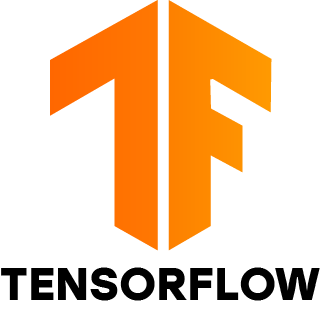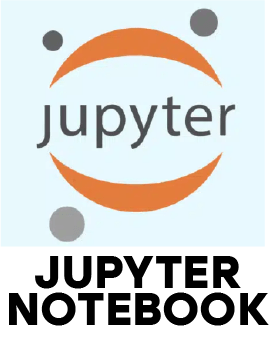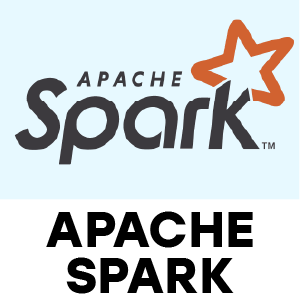Data Science Training in Abu Dhabi is a concepts from mathematics, statistics, calculus, linear algebra, and probability. Following that is a primer on Data Mining and the use of Regression Analysis methods in Data Mining. The concepts and implementation of Python programming to enable Data Mining and Machine Learning are also covered in depth. The use of NLP libraries and OpenCV to code machine learning algorithms is described in great detail. The emphasis on machine learning, deep learning, and neural networks is the course's main highlight. Feedforward and backward propagation in neural networks are thoroughly discussed.
The implementation of the Activation function, Loss function, and non-linear activation function is elaborated. This course also provides a thorough examination of Convolutional Neural Networks (CNNs), Recurrent Neural Networks (RNNs), GANs, Reinforcement Learning, and Q learning. This course is a comprehensive package for all IT enthusiasts interested in designing and developing AI applications in their field of study.
Additional Info
Introduction:
Data Science Certificate Program, you can gain global data literacy. This experiential, innovative, and comprehensive programme is tailored to talented individuals seeking a transformative learning experience in data science. Participants will learn about cutting-edge data Science tools and techniques for extracting insights from real-world data. The programme pedagogy is comprised of an interdisciplinary curriculum and interdepartmental collaboration efforts of the University of Toronto's Rotman School of Management, Department of Statistical Sciences, and Department of Computer Science in design and delivery.
Participants will be able to do the following thanks to this interdisciplinary curriculum:Make use of Internationally Recognized Instructors who have a combination of academic excellence and extensive industry experience.Exposure to examining subjects and concepts from various perspectives, all of which are relevant to the real business world.Look for interesting insights through discussions, assignments, practises, and case studies.Participants who join the Rotman Connect community will be able to gain professional leads and connections through the Rotman School of Management's global online community. The Advanced Data Science Program will provide you with the data-driven skills and confidence you need to gain a competitive advantage in the growing field of data science.
Who can Learn:
What exactly is data science?
Data Science is a branch of computer science that focuses on identifying hidden trends and patterns in structured and unstructured data using a variety of algorithms, tools, scientific methods, and Machine Learning techniques.
What are the various routes into Data Science?
- There are several paths that one can take to become a Data Scientist.
- Data Scientists employ a wide range of Data Science tools and technologies, including programming languages such as R and Python, as well as analysis tools such as SAS.
- As a prospective Data Scientist, you should be familiar with data analysis, statistical software packages, data visualisation, and working with large datasets.
Which programming language is best for data science, and why?
- Python is the most widely used and preferred programming language in data science.
- Python is an open-source programming language that is simple to use and learn.
- Furthermore, it is a dynamic language that supports a variety of paradigms.
- Aside from this, R and SQL are two other languages used in data science.
Skills Covered in Data Science Course:
- Statistics and mathematics Any good Data Scientist will have a solid foundation in both math and statistics.
- Modeling and analytics.
- Methods of Machine Learning.
- Programming.
- Visualization of data.
- Curiosity in the mind.
- Communication.
- Business savvy.
- Big data: Large or complex data sets that cannot be managed with traditional data processing software are referred to as big data.
- That is why data scientists must be familiar with Apache Hadoop or Apache Spark, both of which are open-source distributed processing systems.
- Data modelling is the process of converting specific data into a database.
- Data visualisation is the graphic representation of data that is used to show trends and insights.
- Machine learning is a collection of techniques for predicting and forecasting data.
- Programming: If you want to automate data manipulation, you must be familiar with programming languages such as Python and R.
- Statistics: Although you do not need to be a statistician to interpret data, you must be familiar with some form of applied statistics.
- Data scientists do not work in silos; they are frequently part of larger data science teams that include data engineers, software developers, and others.
Advatages:
1. Cut the Fluff, Stick to the Essentials:
- No one expects a professional data scientist to derive any AI algorithms from first principles.
- You also don't need to delve deeply into the (relatively) trivial history behind each algorithm, nor do you need to learn SVD (Singular Value Decomposition) or Gaussian Elimination on a real matrix without the assistance of a computer.
- An academic degree covers so much material that is never used on the job! Yes, you must have an intuitive understanding of the algorithms.
- When compared to academic researchers or academic counterparts, professional data scientists work in very different domains.
- Learn what you will require on the job.
2. Learning from instructors with real-world experience rather than PhD scientists:
- Now, where should you get your training? From PhD academics who have never worked on a real professional project but have published extensively, or from instructors who have worked on real-life professional projects? Teachers and instructors in colleges and universities frequently fall into the former category, and you are extremely fortunate if you have an instructor who has that invaluable component known as industry experience.
- They will be able to teach you in the context of real-life job experience, which is always exactly what you require.
3. Working with Cutting-Edge Technology Stacks:
- Now, who is more likely to get you a job: teachers who teach what they studied ten years ago or professionals who work with the most up-to-date tools in the industry? It is undeniably true that people with industry experience can assist you in determining which technologies to learn and master.
- Academics, on the other hand, may be working with technology stacks that are more than ten years old! Please try to select instructors who have prior work experience.
4. Individual Focus:
- Individual attention cannot be provided to each student in a college or MOOC with thousands of students.
- However, it is true that in data science programmes, every student will receive individual attention tailored to their needs, which is exactly what you require.
- Every student is unique, and they will each have their own interpretation of the projects available.
- The most significant advantage that such students have over college and MOOC students is the customised attention that is available when batch sizes are less than 30-odd.
5. Guidance for GitHub Project Portfolios:
- Every college professor will advise you to create a GitHub project portfolio, but they will not be able to give your individual profile their full attention.
- The reason for this is that they have far too many students and demands on their time to devote to individual project portfolios and actually mentor you in designing and establishing your own project portfolio.
- However, data science programmes are unique, and instructors can truly mentor you individually in designing your project portfolios.
- so that you can really stand out and be a cut above the rest of your competition.
6. Mentoring Even After You've Been Placed in a Company and Are Working Alone:
- Because your domains will be so different, no college professor will be able or even available to help you once you are placed in the industry.
- However, when industry professionals become instructors, the storey is very different.
- You can even go to them or contact them for guidance after placement, which is something that most academic professors will not be able to do unless they have industry experience as well, which is extremely rare.
7. Help with Job Placement:
- People who have worked in the industry understand how important it is to have company referrals in the placement process.
- It's one thing to make a cold call to a company that doesn't have any internal referrals.
- It can mean the difference between a successful and unsuccessful recruitment process if you have someone already established within the company you are applying to.
- Every industry professional will have contacts in a variety of companies, putting them in a unique position to assist you when it comes to job placement opportunities.
8. Learn important but non-technical job skills such as networking, communication, and teamwork:
- A job in the industry entails far more than just the skills learned in class.
- You must be able to communicate effectively and work well in groups, which can be guided by industry professionals rather than professors, who will have no experience in this area because they have never worked in the industry.
- Professionals will know who to guide you on this aspect of your expertise because they have been in that position and have learned the necessary skills in the industry through their job experiences and work capacities.
9. Lower Cost Requirements:
- It's one thing to be able to pay for your own PhD doctoral tuition.
- It's quite another to learn the same skills for less than 1% of the cost of a PhD in, say, the United States.
- Not only is it less demanding financially, but you also don't have to worry about being able to pay off massive student loans through industry work and fat paychecks, which can often come at the expense of compromising your health or family needs.
- In most cases, the data science programme will provide you with better training than an academic qualification because your instructors will have real-world experience.
10. Significantly Reduced Time Requirements:
- A PhD degree typically takes 5 years to complete.
- A data science programme can get you job-ready in a matter of months.
- Why don't you decide which option is best for you? This is especially true if you already have job experience in another domain or are over the age of 23-25, as completing a full PhD programme could put you on the wrong side of 30 with almost no job experience.
- Please apply for the data science programme, as time spent working in your 20s is critical for most companies hiring today, as they consider you to be a good ‘çultural fit' for the company environment, especially if you have less than 3-4 years experience.
Career path od Data Science Course:
1. A career in data science is both profitable and rewarding.
2. However, the path to launching or advancing a data science or analytics career is not always straightforward.
3. Unlike more traditional jobs, becoming a data science professional does not necessitate a technical bachelor's or master's degree.
4. All you need are the right skills and experience.
5. You'll learn the ins and outs of data science and analytics career paths and skills in this guide.
6. Take away advice on how to choose the right data science career for you.
7. Deciding whether a career in data science is right for you entails more than simply determining whether you enjoy working with data.
8. It's about determining whether you enjoy working on complex, ambiguous problems and whether you have the aptitude and patience to expand your skill set.
Roles and Responsibilities:
Management:
The Data Scientist plays a minor managerial role in which he assists in the development of a foundation of futuristic and technical abilities within the Data and Analytics field in order to assist various planned and ongoing data analytics projects.
Analytics:
- The Data Scientist is a scientific role that plans, implements, and evaluates high-level statistical models and strategies for use in the most complex business issues.
- The Data Scientist creates econometric and statistical models for a variety of problems such as projections, classification, clustering, pattern analysis, sampling, and simulations.
Strategy/Design:
The Data Scientist plays an important role in the development of innovative strategies to understand the business's consumer trends and management, as well as ways to solve difficult business problems, such as the optimization of product fulfilment and overall profit.
Collaboration:
The Data Scientist's role is not a solitary one, and in this position, he collaborates with superior data scientists to communicate obstacles and findings to relevant stakeholders in order to improve business performance and decision-making.
Knowledge:
- The Data Scientist also takes the initiative to investigate new technologies and tools with the goal of developing innovative data-driven insights for the business at the quickest possible pace.
- In this case, the Data Scientist also takes the initiative in assessing and implementing new and improved data science methods for the business, which he submits for approval to senior management.
Tools Involved in Data Science Training:
- Notebook Jupyter.
- RStudio.
- Zeppelin.
- Watson Design Studio.
Certification:
- SAS Academy for Data Science is a data science training programme run by SAS.
- Microsoft Certified Solutions Professional (MCSE).
- Cloudera Certified Professional (CCA).
- CCP Data Engineer is a Cloudera Certified Professional.
- Harvard Extension School offers a certificate in data science.
- AWS Big Data Certification from Amazon.
- Oracle Certified Business Intelligence (OCBI).
Payscale:
1. The median salary for data science in Abu Dhabi is $95,000, which is nearly double the national average.
2. Even the average salary for data analysts, a more entry-level role, is around $70,000, which is significantly higher than the median salary in the United States.
3. The average salary for a data scientist is $850,000.
4. With 5 to 8 years of experience, a mid-level data scientist can earn around $100,000 per year.
5. Early-career data scientists with 1 to 2 years of experience earn approximately $6,11,000 per year.








































